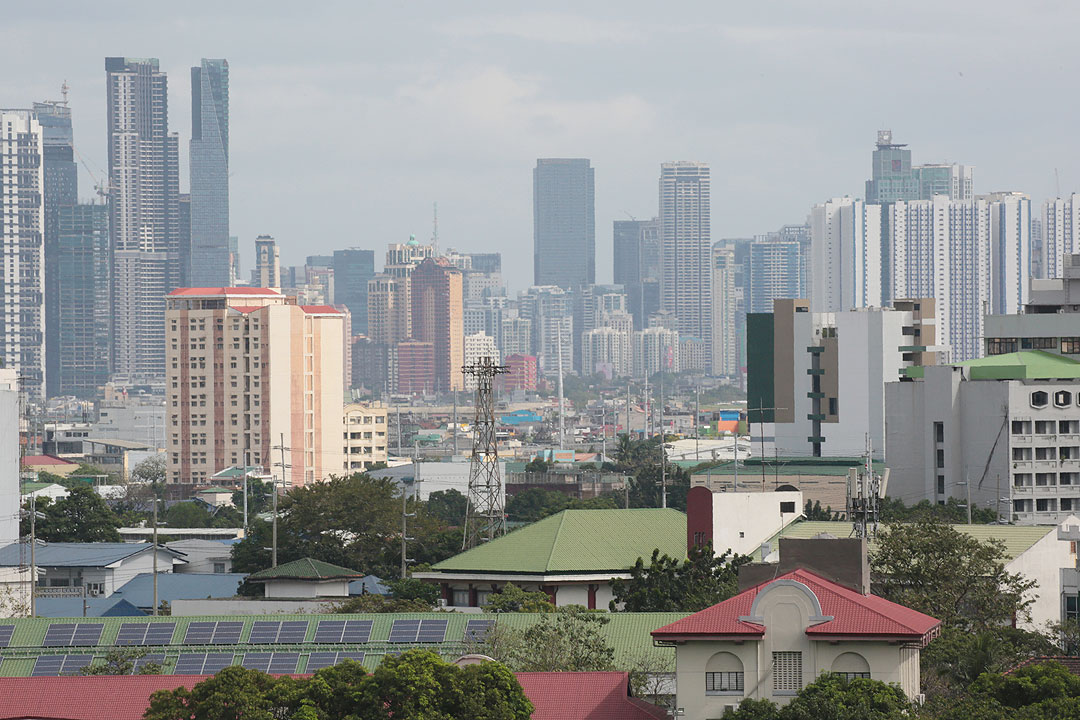Lost income from coronavirus pandemic may be recovered by 4th quarter of 2023 — FSCC

THE PHILIPPINE ECONOMY is expected to continue to rebound, but it may take until the fourth quarter of 2023 to recover lost incomes from the coronavirus pandemic, the Financial Stability Coordination Council (FSCC) said.
FSCC Chairman and Bangko Sentral ng Pilipinas (BSP) Governor Benjamin E. Diokno said the 5.6% gross domestic product (GDP) growth in 2021 reflects a “solid turnaround” from the previous year’s record contraction.
“Our economy progressed strongly last year. We are pleased to see how regulators and economic agents came together to help achieve, and even exceed, growth expectations. We welcome these gains, recognizing that there will always be improvements we can pursue, while maintaining a watchful eye over changing market conditions,” he said during the virtual launch of the FSCC’s second semester 2021 Financial Stability Report on Wednesday.
In its report, the FSCC said there are concerns over some “speed bumps” this year.
“There are still costs from the pandemic and recouping these (at the aggregate) will depend on future gross domestic product (GDP) growth rates. Assuming a 5% real growth for 2021 and 7% thereafter, the point of recovering lost incomes takes us to the fourth quarter of 2023,” the FSCC said, adding it assumes there are no more “complications” with the coronavirus disease 2019 (COVID-19).
Economic managers expect GDP to grow by 7-9% this year and in 2023.
The FSCC identified several issues that need to be addressed to sustain the economy’s recovery, namely public infrastructure, supply bottlenecks, social inequity, and climate change.
“While handling COVID-19’s myriad of health-related challenges is complicated — from capacity limitations to vaccines to communication — it is a mistake to think of COVID-19 as a black swan event. COVID-19 is a materialized systemic risk because of its contagion effects, and we need to think about these butterfly effects,” it said.
The FSCC said damage from the pandemic was mostly felt by nonfinancial corporations and vulnerable households.
As inflation remained elevated, the FSCC noted lower income groups were disproportionately affected, with prices of essential items like food and non-alcoholic beverages, clothing, and fuel increasing at a faster pace.
“What one will find is that socioeconomic inequities have been widened by COVID-19, driven by more adverse effects on those in the informal market and/or economically less fortunate. This socioeconomic impact will have lasting effects,” the FSCC said.
It also warned the continued disruption in education will have an adverse impact on the labor force and economy, with future workers likely not to be fully prepared for the demands of an increasingly digital world.
“The combined effect of lost learning opportunities, and uncertainty in job and financial security may affect the local economy even after the country exits from the pandemic,” it said.
The Philippines is among the last countries to bring back face-to-face learning for students.
Also, the FSCC said climate change is a pressing concern that could affect financial stability, noting the Philippines faces severe weather occurrence like typhoons and floods every year.
“While there is no doubt that climate change is global in nature, the expectation remains that lower-income countries are more vulnerable to losing a larger share of their economic output due to climate change,” it said.
The government should also proactively prepare for another health crisis, taking into account the impact of the pandemic on the country’s financial stability.
The FSCC stressed the importance of increasing hospital care capacity, consistent research, and the production of vaccines — which all need funding.
“The existing capacity to handle surges in medical needs can stand improvements. The real challenge in all these is how the costs of these improvements will be funded and borne by stakeholders,” the FSCC said.
The FSCC is composed of the BSP, the Department of Finance, the Insurance Commission, the Philippine Deposit Insurance Corp., and the Securities and Exchange Commission. It focuses on assessing systemic risks or the potential for an event to trigger severe instability or the collapse of an entire industry or economy, taking on the lessons from previous downturns like the Global Financial Crisis and the Asian Financial Crisis. — L.W.T.Noble



